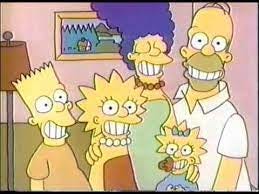Typically, when this Substack looks to the past, it looks for cyclical patterns that might be relevant to today’s media landscape. This two-parter looks at a year whose spirit has never left us, for better or worse. Everything examined here will either prove to have never lost relevance or will only have been more relevant now than before.
Soft Power Breaks Down Hard Walls
When Gorbachev loosened restrictions on cultural imports from the West, America’s culture industry turned on the fire hose of popaganda. As the legend goes, young Eastern Europeans’ desire for blue jeans and rock music led to the fall of the Berlin Wall and the USSR. What’s important here is not whether this is true, but rather that the US government never stopped believing it is.
This focus on soft power has affected everything from how US wars are broadcast on TV with as little blood as possible to why R-rated comedies are an increasingly rare bird. More than Disney World, the US must appear to be a fun, friendly and safe place for the rest of the world.
It’s no wonder why the American government is so gung-ho about getting rid of TikTok. From the ‘40s till now, American culture was world culture. A Chinese company like TikTok being at the center of American pop culture as it has been this decade threatens America’s belief that, if it’s does not lead the world in cultural exports, its own walls will come crumbling down.
The First Mobile Digital Device
Imagine a subway ride, an awkward moment or a long line without a distracting puzzle game. Yes, it probably is better to stay with the boredom. But ever since Henk Rogers adapted Alexey Pajitnov’s blockbuster Russian game Tetris for the small screen of the yet-to-be released Game Boy, we have never had to live without distraction again. In 1989, GameBoys were primarily played in public by children. But the addiction proved too strong and soon grown men were mashing their thumbs in public.
Not only was modern casual gaming introduced in 1989. Game Boy was the first major mobile digital device. Before Blackberries became common in the early ‘00s, if you saw someone in public staring at a screen in their hands like they were in another world, they were probably trying to squeeze in the “L” piece.
Television Loses its Moral Baggage
From the ‘50s through the ‘80s, network television ran on the assumption that, if a show is being broadcast into someone’s home, the show should have a kind outlook on life. Controversial shows like All in the Family, shocking though they may have been, still pushed a very clear message of tolerance. Even Saturday Night Live in the ‘70s had political satire as its redeeming factor.
In 1989, Mike Meyers was a featured player on Saturday Night Live. “Wayne’s World” became the recurring sketch to beat all recurring sketches. You watched ‘70s SNL to catch Chevy Chase impersonate Gerald Ford. From 1989 till Dana Carvey exited in 1993, “Wayne’s World” was the reason to tune in to 30 Rockefeller on Saturday Night. SNL still had political satire, but that was far from the draw. By this point, politicians were already in on the joke, appearing as themselves and getting gently ribbed. Funny was the focus. The cast in 1989 included Dana Carvey, Mike Meyers, Phil Hartman, Kevin Nealon, Jon Lovitz, Kevin Nealon and a very underutilized Ben Stiller. The writers? Jack Handey, George Meyer, Conan O’Brien, Bob Odenkirk, Robert Smigel and Ben Stiller. Ben Stiller and Bob Odenkirk would leave and work together on The Ben Stiller Show, where Odenkirk would meet David Cross and create Mr. Show.
George Meyer and Conan O’Brien, meanwhile, would go on to write for The Simpsons, which first aired in 1989. Creator Matt Groening may have left in a few sentimental moments, but those were meant more to serve the characters than to reinforce the validity of the nuclear family as a concept, which most sitcoms before did. What was heartbreaking about the show was that all the love and kindness that was eked out wouldn’t change the fact that the family (and the world it portrayed) was dysfunctional.
The Simpsons was satire, but there was no clear straight person. Even Lisa, who seems to hew closest to the writers’ political perspective, is an outcast at school who is often portrayed as preening and self-righteous.
If The Simpsons was short on role models, Seinfeld may as well have been pitched as a show about villains. Larry David made the famous credo “No Hugging, No Learning” and, more than either SNL or The Simpsons, Seinfeld had absolutely no political or moral agenda. If it got laughs, it got on.
This comedy about amoral reprobates would set the precedent for peak TV dramas with antiheroes from The Sopranos to Succession.







Honestly I bet the network forced those moments
Mo, some great insight here into you what you better believe was an important year for the planet, 1989 was the year the Berlin Wall came down peacefully and so many moments happened of a lasting significance.
Also, On a Pop Culture Front let's not forgot the importance of Tim Burton's "Batman" for here is when the Hollywood Summer Tent Pole Blockbuster became dependent on the one big opening weekend...
Looking forward to reading your take on 1991.
TC